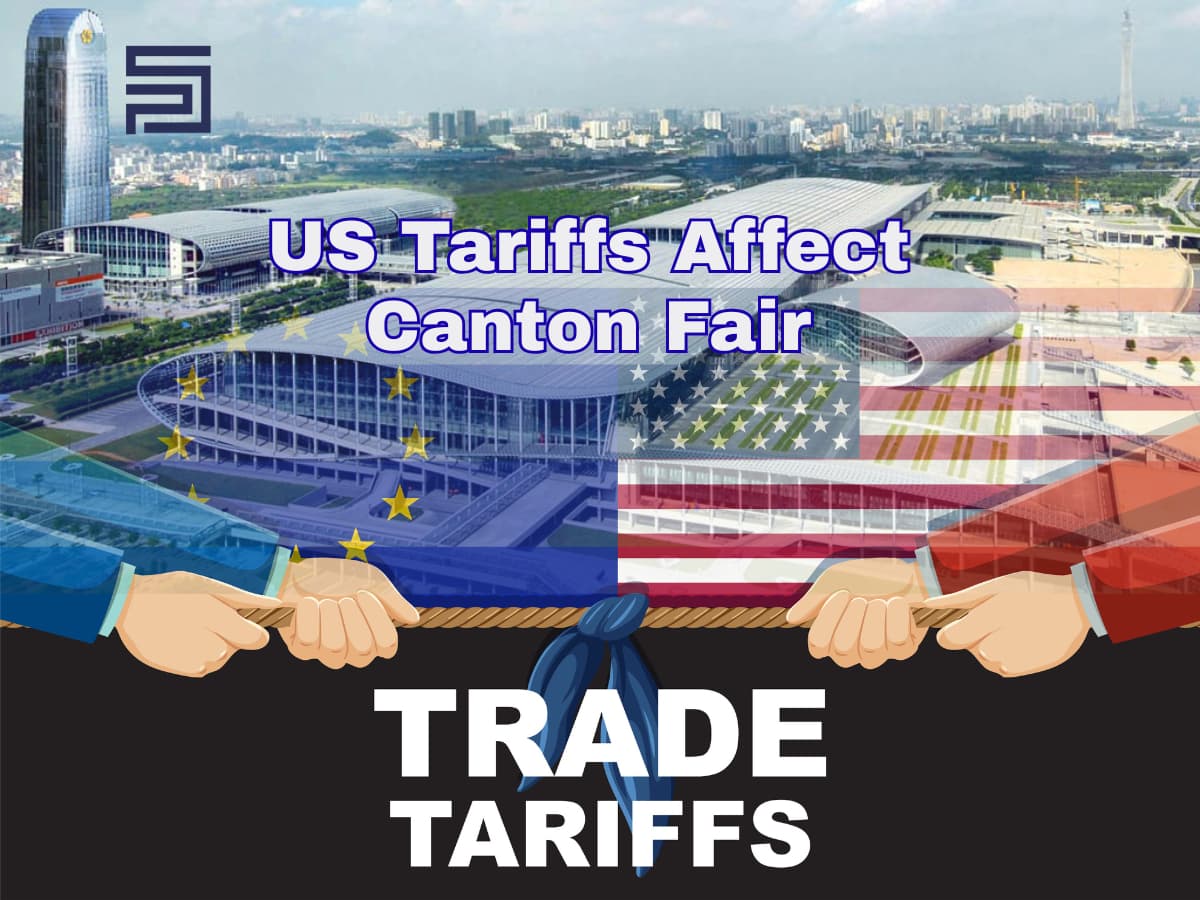If you have tried negotiating procurement deals with the Chinese, you would agree with me that it is not the same as negotiating with a Western supplier.
The Chinese have their negotiation style, and knowing their style will determine how well you can negotiate with them.
In this article, you will find the major challenges businesses face when dealing with Chinese suppliers and the proven strategies we use at SARA when helping our clients negotiate with the Chinese — this works well with the Chinese negotiation style.
I shared a simple checklist for dealing with Chinese suppliers at the end of this page. Let’s get started.
Do you need the help of professionals to secure good deals with the Chinese? Contact our team, and let's help you out.
Key Challenges in Dealing With Chinese Suppliers.
Why is dealing with Chinese suppliers difficult?
Well, here are 4 major reasons for this:
1. Communication Issues:
Language barriers and clarity are major headaches.
Many Chinese suppliers understand limited English; poor translations or broken phrases lead to misunderstandings.
Even when you find a supplier or manufacturer who speaks English, technical terms and idioms can get them lost in the conversation.
Another major issue you could face is the Time-zone differences (China is 12+ hours ahead of the US, and China is 7+ hours ahead of Nigeria, for example).
This means emails or chats can go unanswered until the next day, delaying decision-making.
All these make communication a pain, especially if it's your first time trying the Chinese market.
At SARA, we have been working with the Chinese for over 20 years, and we understand our way around this. I will share some tips later in this article.
2. Legal and contractual hurdles:
A common mistake foreign companies make is drafting agreements that are unenforceable in China.
They do this by:
- Including choice-of-law and jurisdiction clauses that point exclusively to foreign courts.
- Having English-only contracts without proper Chinese translations.
- Using arbitration clauses that fail to meet PRC formalities.
- Employing covenants (like non-competes) that exceed China’s statutory limits.
All this won’t work. They only make reaching an agreement with the supplier more difficult.
3. Trust and transparency concerns:
A common complaint I have seen businesses make about the Chinese market is low transparency. Trust is not automatic when dealing with Chinese vendors.
There are often cases of:
- Getting counterfeit components,
- Hidden factories,
- Manufacturers keeping their sub-suppliers and costs secret,
- Critical details (e.g. part suppliers, factory certifications) undisclosed, or
- Sudden price hikes, sometimes due to hidden charges.
All these result from low transparency in the system and make it difficult to trust what any supplier tells you.
At SARA, when dealing with a new supplier, we carefully verify everything told by the supplier to uncover many pitfalls and avoid bad suppliers, protecting our clients.
The Chinese Negotiation Style.
For most Chinese suppliers, negotiation isn't just about contracts or legal frameworks, as it often is in the West, but rather a process of building trust and laying the groundwork for a mutually beneficial, long-term relationship.
Due to this, the Chinese negotiation style is built on 3 cultural foundations:
1. Guanxi:
Guanxi is a term which means Relationship First. It forms the bedrock of Chinese business dealings.
You need to establish guanxi with a manufacturer to signal to them that you are committed to doing business with them.
If this is done appropriately, you benefit from getting key business information from them that other businesses won't have access to.
2. Mianzi:
Maintaining face is paramount in Chinese negotiation. This is referred to as Mianzi. Avoid direct criticism or confrontation risks, as this would lead to embarrassment and erode trust.
Our Chinese negotiators often employ indirect speech, nonverbal cues, or intermediaries to convey disagreement without overt refusal.
Avoiding public admonishment and offering concessions tactfully helps preserve mutual face and facilitates progress.
3. Long-Term Orientation:
Chinese business culture imbues long-term deals.
Due to this, the Chinese negotiation process usually values and favours enduring partnerships over short-term wins.
Chinese suppliers are more inclined to work with partners who demonstrate commitment, consistency, and a shared vision for the future.
Focusing solely on immediate gains can signal short-sightedness and weaken your position in the negotiation process.
Instead, ensure you show patience and a willingness to invest in the relationship. This will yield more sustainable and profitable outcomes for your business.
Proven Negotiation Strategies and Tactics to Adopt When Dealing with Chinese Suppliers.
1. Research Deeply:
Before you start negotiating with a supplier, conduct adequate research on the market, the product, the supplier, pricing, similar products and prices, payment method, minimum order quantity, etc.
Ask questions about product specifications, packaging standards, and quality. Also, find other suppliers that offer the same product and compare products, price, quality, packaging differences, payment methods used by each, delivery time, and ability to deliver within the lead time window.
Deep research gives you a clear idea of what you want, what you can offer, and the supplier you want to work with. This sets the tone of negotiations.
2. Prepare your data for negotiation:
Based on the research outcome, prepare and organise your data for negotiation. This helps you with informed negotiations, knowing when you are being cheated or when a deal is good or bad.
Present the factual information to your supplier transparently and share the relevant data with them. This will make them realise that you are an experienced and knowledgeable customer who expects to be treated fairly.
Also, they must understand that losing a valuable customer like you to a competitor is not in their best interest.
3. Build a good rapport with the supplier:
Negotiating with Chinese suppliers goes beyond data, numbers, and facts. You need a good relationship that is very much valued, not just by Chinese suppliers but by suppliers all over the world.
Good relationships yield benefits, which include favourable deals from the suppliers. When suppliers like and trust you, they will give you good deals.
You can build an effective relationship by showing interest in their culture and language, respecting their customs, addressing them with proper titles, complimenting products/services, and being honest.
4. Negotiate prices based on the quantity of goods:
Always request the quantity price breaks to get a better idea of the price range and the best price from a supplier.
Suppliers usually give a general price and only provide a better deal when buying larger quantities.
Therefore, it is essential to ask for a quantity price break to know what works for your business and the quantity you can afford to buy at a time. We use this step to procure high-quality products at cheaper prices.
5. Use Available Leverage:
Leverage is any advantage or influence you have over a supplier during a negotiation. This can include your knowledge, alliances, connections with other suppliers, market potential, existing customers, and your business's size, name, and status.
Using leverage wisely can help persuade the supplier to offer a better deal or accept your terms.
Leverages should be used truthfully, strategically, tactically, and realistically. Don’t try to appear aggressive or overly forceful, as this can damage trust and lead to resistance from your Chinese counterpart.
Remember to keep to Mianzi, maintaining face as I discussed earlier.
6. Proper Documentation:
It is important to document every stage of the negotiation process. After each negotiation session, confirm everything in writing with the supplier and obtain their signature where necessary.
More importantly, the supplier should summarise the agreement in an email or a document, as this will help confirm that you are all on the same page to avoid any confusion or disputes later in the business.
Also, a formal contract should be written and signed by all the parties involved in the negotiation process with the supplier before finalising the deal.
At SARA, we ensure that our clients' documents are in English and Chinese when necessary to ensure efficient communication with the Chinese suppliers.
7. Place a high value on yourself
It's essential to remember that suppliers are interested in selling their goods and value good partnerships.
By positioning yourself as a dependable and trustworthy partner, you increase your chances of receiving a favourable deal from them.
Build your negotiations toward long-term deals and agreements. The business culture in China values long-term relationships and will place more value on your business if they see you as a long-term partner.
8. Well-rounded negotiation
When negotiating with Chinese suppliers, go beyond the price to negotiate other aspects of the deal like quality, quantity, delivery time, payment terms, MOQ, warranty, and after-sales service.
You can optimise negotiations by balancing the benefits and risks of different aspects, creating flexibility, and finding optimal solutions.
Checklist For Dealing with Chinese Suppliers.
✅ Pre-Negotiation Preparation
A. Deep Market & Supplier Research
- Compare multiple suppliers on price, quality, MOQ, lead times, and payment terms.
- Verify factory credentials & registration in the Chinese government records.
B. Data Kit Ready
- Gather product specs, sample photos, benchmark prices, and historical order volumes.
- Organise into a shareable one-pager or slide deck.
✅ Building Trust & Relationship (Guanxi)
A. Schedule Informal Touchpoints
- Banquets, video calls with small talk, and site visits (in person or virtual).
B. Cultural Respect
- Use proper titles, and learn a few greeting phrases in Mandarin.
- Acknowledge “face” (mianzi)—avoid public criticism, offer concessions tactfully.
✅ Communication Best Practices
A. Bilingual Written Confirmations
- After each call or meeting, send a summary email in both English & Chinese.
B. Clarity & Over-Communication
- Spell out specifications in detail (diagrams, photos).
- Confirm timelines, quantities, packaging, and payment terms in writing.
C. Leverage Time-Zone Management
- Agree on “office hours” overlap; use scheduled calls rather than ad-hoc chats.
✅ Negotiation Tactics
A. Signal Multiple Options
- Mention you’re in discussions with other suppliers—even if loosely.
B. Ask for Quantity Price Breaks
- Get tiered pricing (e.g., 100, 500, 1,000 units) to understand your best deal.
C. Use Leverage Wisely
- Reference your company’s history, order volume potential, or other supplier quotes.
- Be truthful, realistic, and non-aggressive to preserve trust.
- Leverage SARA’s 20+ years of expertise for end-to-end support, from negotiation and quality checks to shipping and dispute resolution.
D. Long-Term Partnership Emphasis
- Frame discussions around future orders and strategic collaboration.
- Show patience—avoid rushing or pushing for one-off wins.
✅ Contracting & Documentation
A. Bilingual Contract
- English & Chinese versions, with Chinese text as the controlling version.
B. Clear Legal Clauses
- Specify PRC law or agreed arbitration body (e.g., CIETAC).
- Include precise payment, delivery, warranty, and penalty terms.
C. Formal Sign-Offs
- After negotiation, obtain written, and if possible, signed confirmation of every point.
Conclusion
To negotiate effectively with Chinese suppliers and secure more favourable terms, you need both cultural insight and strategic support.
Partnering with a seasoned procurement specialist like SARA streamlines every step of the process, from supplier sourcing and data-driven negotiations to bilingual contracting and dispute resolution.
With over 20 years of on-the-ground experience in China and a steadfast client-first approach, we tailor each contract, conversation, and contingency plan to align with local practices and your unique business objectives.
Let us turn cultural complexity into your competitive edge.
Contact SARA today and start negotiating with confidence.






Comments
Please log in to leave a comment.